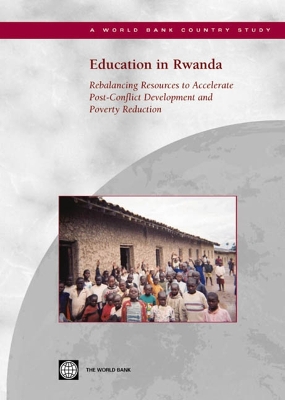Education in Rwanda: Rebalancing Resources to Accelerate Post-Conflict Development and Poverty Reduction is part of the World Bank Country Study series. These reports are published with the approval of the subject government to communicate the results of the Bank's work on the economic and related conditions of member countries to governments and to the development community. Ten years after the 1994 genocide - in which an estimated 10 percent of the country's population perished - Rwanda's devastated education system is now back on its feet. This success notwithstanding, the task of transforming the rapid recovery into sustained progress over time has only just begun. A priority will be to ensure that all Rwandan children can complete a full course of primary schooling of reasonable quality; and that expansion at the post-primary levels occurs at a pace commensurate with the labor market's capacity to absorb highly educated job seekers.
Achieving these goals will present tough tradeoffs in financing and service delivery: for example, combining increased funding for primary education with greater reliance on private financing at other levels of education; sharper targeting of public subsidies for education; and tighter management of classroom processes to improve student flow and student learning throughout the system. Education in Rwanda explores the challenges of sustaining educational progress in a fiscally viable fashion
- ISBN10 0821356100
- ISBN13 9780821356104
- Publish Date 20 November 2003
- Publish Status Active
- Publish Country US
- Imprint World Bank Publications
- Format Paperback
- Pages 246
- Language English
